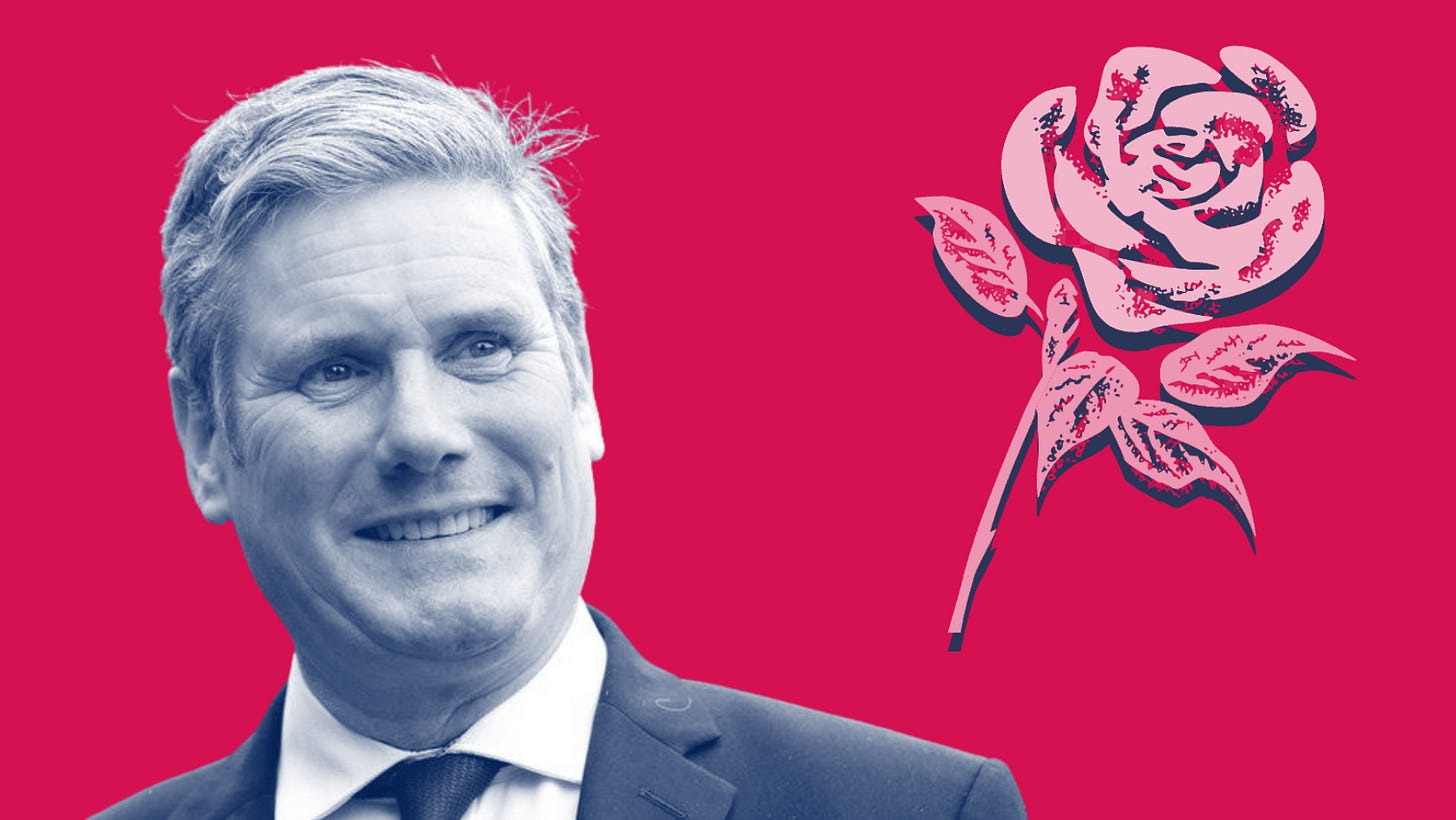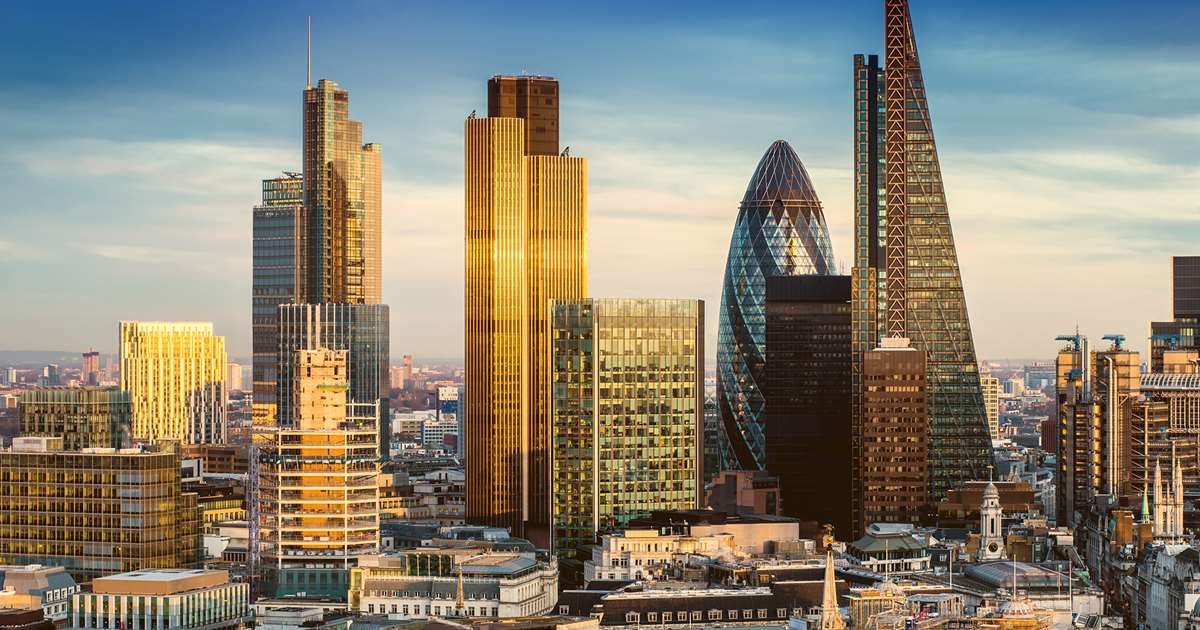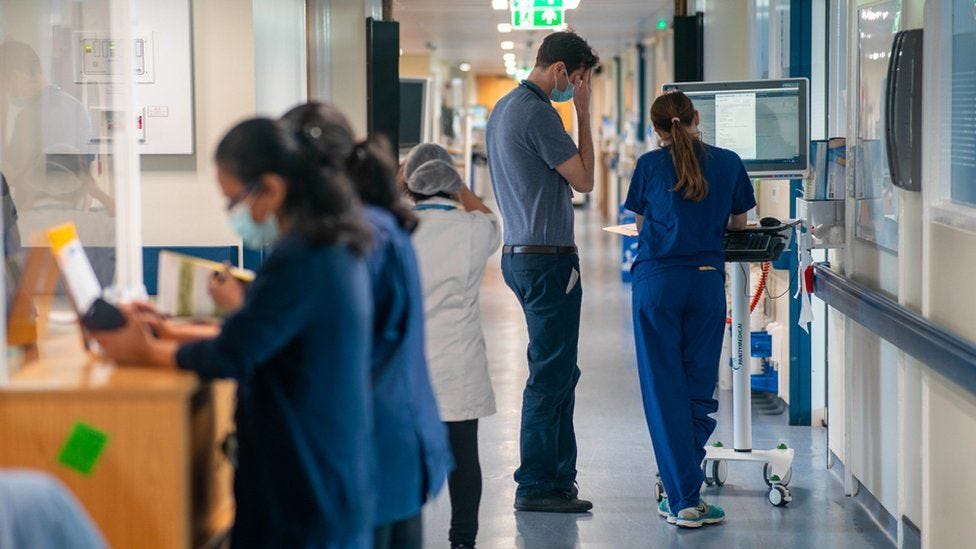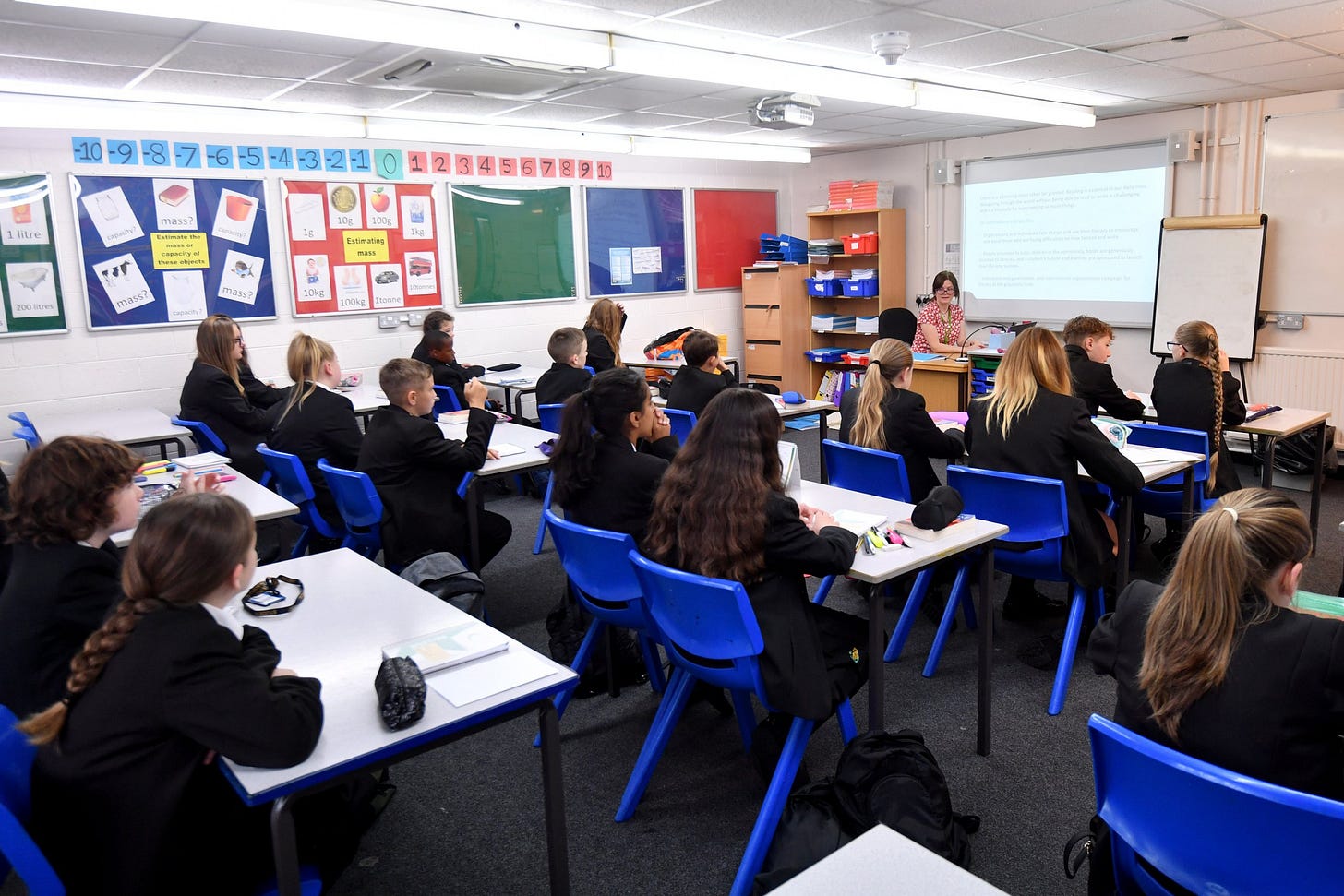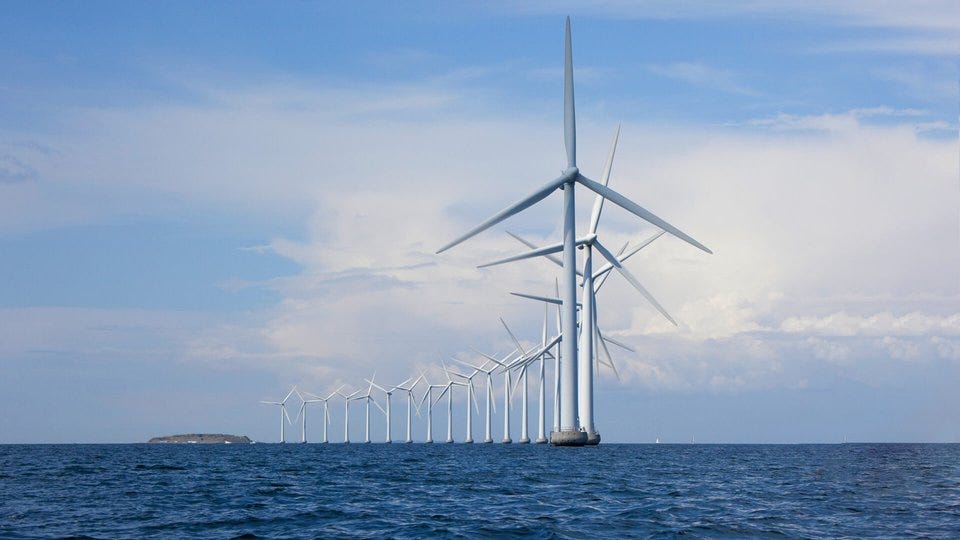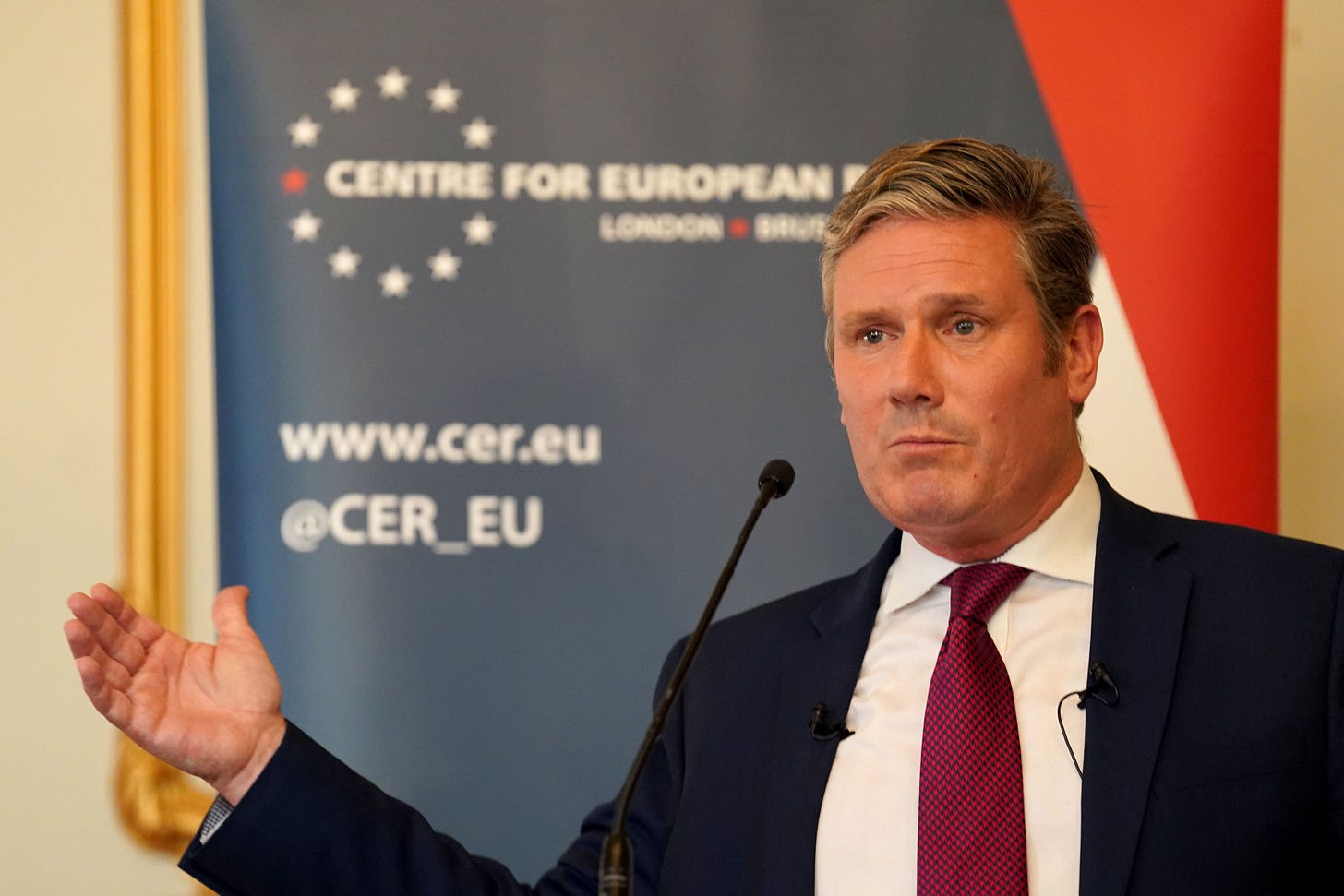What To Expect From A Keir Starmer Premiership
Mapping out the range of plausible outcomes if Labour wins the next general election.
The Labour leader will face an uphill struggle when he enters 10 Downing Street. The economy is in free fall, wages are stagnant, schools are literally falling apart, and nothing seems to work. Thirteen years of Tory austerity has effectively crippled the country.
So far, Labour’s spokespersons have been vague when defining what the party’s political agenda will be in office, with most hesitant to give clearer definitions while the economy is fluctuating. This nebulous state of affairs makes it difficult to predict what a Starmer premiership will look like, however, drawing from speeches given to the press and early draft copies of the manifesto, a rough outline can be traced.
Constrained by monetary limitations, any hope of Labour delivering transformative change seems optimistic, not least because Starmer has tamed expectations at every opportunity. This does not mean that Labour will be completely ineffective in office, however. There are still a wide array of policy prescriptions available to Starmer and his cabinet. Which of these he chooses will define his premiership, the Labour party, and the UK itself in the 2020s.
Economy
Since 2010, the destabilizing coalition of austerity, Brexit, Covid, and 2022’s ‘mini’ budget has produced the longest period of wage stagnation in modern British history. The UK economy has also faced repeated deep recessions and low growth, with limited recoveries. Reversing this trend will undoubtedly be the biggest challenge facing an incoming Labour government.
In their 1997 manifesto, New Labour pledged to be “wise spenders, not big spenders.” It’s clear, after looking at the party’s recent moves, that Starmer is following this pledge ardently. Rachel Reeves, Labour’s shadow chancellor, has already announced plans to create an Office for Value of Money to track the government’s financial expenditures and make sure new investments go towards economically beneficial causes, committing Labour to financial responsibility.
This financial responsibility is at the heart of Starmer’s Labour project. One only has to look at the projects and policies Labour HQ have abandoned or dilluted - the wealth tax, for example - to see Starmer’s reluctance in pursuing an ambitious macroeconomic policy. There is a reasoning behind this hesitation, however. According to senior Labour officials, once voters trust a Labour government to spend their money properly and effectively, they will have more confidence in Labour as a political actor, opening up political space for them to take bolder policy action in areas, such as tackling climate change, in a second term.
To secure the highest sustained growth in the G7 - Labour’s newest barometer for success - without wealth or corportation tax increases, Labour will have to resort to less conventional, stealthier ways to raise revenue. This conundrum is only exacerbated by Reeves’ committment to cutting national debt as a percentage of GDP, placing Labour under austere confines.
One solution - and the one Starmer clearly favours - is to simply increase GDP through supply side policies, widening the so-called “pie of opportunity”. This can be done in a number of ways:
If polls are correct and Labour is on track for a substantial majority, the stable political environment it produces will soothe international investors, still wary from years of conservative instability, spurring foreign investment.
Reeves has identified that high business rates stifle investment in the facilities and innovations needed for sustainable growth and exacerbates regional inequality. Weakening or lessening business rates, a policy announced at Labour’s 2021 conference, would encourage more start-ups and help salvage the UK’s high street, which relies heavily on these small firms.
Cutting income tax and lowering interest rates would boost consumer spending.
Levying a gradual tax on landed estates, as proposed by Labour’s central committee, would generate billions in new revenue, freeing up space and giving the government more flexibility in pursuing its macroeconomic ambitions without stifling economic growth.
Healthcare
Once the envy of the world, the NHS has become an international laughing stock. Nearly a decade and a half of Tory under-funding has crippled the institution, resulting in spiraling waiting times and a brain drain as doctors flee to countries which offer higher pay.
Under the stewardship of Wes Streeting, Labour’s healthcare policy team has largely been prudent, refraining from big policy commitments and compromising with large insurance firms, to the ire of the party’s left flank. Judging by his interviews, Streeting seems to be a major proponent of gradual change, focusing on the NHS’ structural issues first before tackling chronic underpay or privatisation.
Despite the flat-lining of spending and against a backdrop of growing need, Streeting’s prescription is not more money, but reform. A new Labour government, speerheaded by Streeting, will likely focus on updating the NHS’ outdated computer software - most hospitals still run on Windows XP - streamlining the bureaucracy, and shifting focus onto preventative care, so patients don’t inundate hospitals with easily curable symptoms. This last point is arguably the most substantial element on Starmer’s vision for healthcare. By making far more services available on people’s doorsteps, Labour will allow more patients to be treated from the comfort of their own homes, reducing a strain on hospital services which are already struggling from over-reliance.
This approach, while unconventional and less ostentatious, seems to be the best compromise between Labour’s aims of reforming the NHS’ structural problems while cutting down on unnecessary waste.
Education
Labour’s plans for education include ditching single-word Ofsted inspection grade judgements, sending regional improvement teams of heads and teachers into struggling schools, and hiring 6,500 new teachers over the next parliamentary term. Labour has claimed that, under the Conservative government, pupils have experienced a narrowing of the curriculum with creative and vocational subjects “too often being squeezed out”. If elected, the party plans to urgently commission a full, expert-led review of curriculum and assessment, with the aim of delivering a curriculum which is rich and broad, and one that expands children’s knowledge and skills. The importance of oracy was also emphasised as a class barrier holding social mobility back. Starmer has subsequently pledged to weave oracy and public speaking skills into the curriculum, encouraging students to participate more frequently in class room debates and offer their own insights.
Climate Change
Amidst a Conservative U-turn on the issue, with Sunak planning to delay most of the net-zero pledges to 2035 and later, Labour has an opportunity to present itself as the party most committed to tackling climate change. In fact, the war against fossil fuels will likely define Starmer’s first term in office.
In a stark contrast to their other policy commitments, Labour’s climate agenda is ambitious and costly. Plans include: insulating 19 million homes over a decade, creating a zero carbon power system by 2030, and establishing a new state-owned energy company to compete with pre-existing ones in a bid to lower consumer’s energy bills. According to Rachel Reeves, Labour’s shadow chancellor, these measures would be funded by an annual investment of £28bn, though Labour has since said that this figure would be reached by the middle of its first term in parliament, instead of immediately as previously claimed. This spending will be focused on transitioning domestic infrastructure, like housing and transport, away from its current reliance on oil and gas.
Immigration
Arguably the most contentious issue on this list, immigration highlights the widening gulf between Labour’s urban, socially liberal young voters and its northern, rural working-class, socially conservative voter base. However, at a time when the conservatives are historically weak on the issue, Labour has a lot of flexibility - and a lot to prove.
Starmer already has shown a willingness to confront the immigration debate head on, marking a drastic change from his predecessors, outlining a new approach in his recent visit to Calais, with a promise to treat people-smuggling gangs like terrorists. Plans to hire more asylum caseworkers will help clear the backlog of more than 175,000 asylum seekers awaiting an initial decision on their application, and collaborating with the EU should reduce annual numbers back to sustainable levels. If Starmer can abide by these promises, there’s a chance he can bring about a paradigm shift in how voters perceive the Labour party as being laxed towards Britain’s borders.
International Politics
Since Brexit, for all the integrated reviews — original or refreshed — pivots to Asia and “Global Britain” slogans, the British government has been adrift, unmoored and increasingly marginalized. Prime ministers have postured at the G7, the G20, the U.N. and at Commonwealth meetings, and they have loudly broadcast their undying commitment to Ukraine. But support for Ukraine doesn’t make a foreign policy. And the result is that Britain is becoming increasingly irrelevant to other nations, and less influential in global debates.
Restoring the UK’s soft power influence will be an absoloute priority for a new Labour government. Only though power and influence can the UK protect and [advocate] for its interests abroad.
A Starmer premiership will likely seek a reset in UK-EU relations, hoping to find common ground on climate change, immigration and the war in Ukraine. Labour seems to be pre-empting this with a change in rhetoric, describing the EU as “partners” and “allies”, a contrast with the more inflammatory tone deployed by the incumbent Conservative government. During his visit to Montreal, the Labour leader told the FT he wants to seek a major renegotiation of Britain’s relationship with the European Union. If Starmer wants thos to become a reality, he needs to oversee a major effort to smooth and strengthen economic relations with the EU, so as to enable British business to compete effectively — and this will only be possible through consistent attempts to cultivate close relations with all member countries. Now that British ministers can no longer meet their EU counterparts at regular councils, far more work will be needed to protect British interests via more intensive bilateral links. While Starmer has ardently ruled out returning the UK to the EU’s customs union, its possible the UK could rejoin some of the EU’s affiliate programmes like Erasmus and Horizon under his administration.
Aside from the EU, it looks like Labour’s international agenda will not deviate much from the Conservatives’. The party still plans to adhere to NATO’s 2% GDP spending committment, strengthen ties with the US, and speerhead Western initiatives in tackling climate change and terrorism.
Starmer recently embarked on a world tour to meet with heads of state including France’s Emmanuel Macron and Canada’s Justin Trudeau, where he warned that the UK needs to “wean itself off” China, and that one of his priorities if elected would be “the restoration of the UK and its reputation on the world stage.” Expect this to be the foundations of Starmer’s foreign policy vision.


